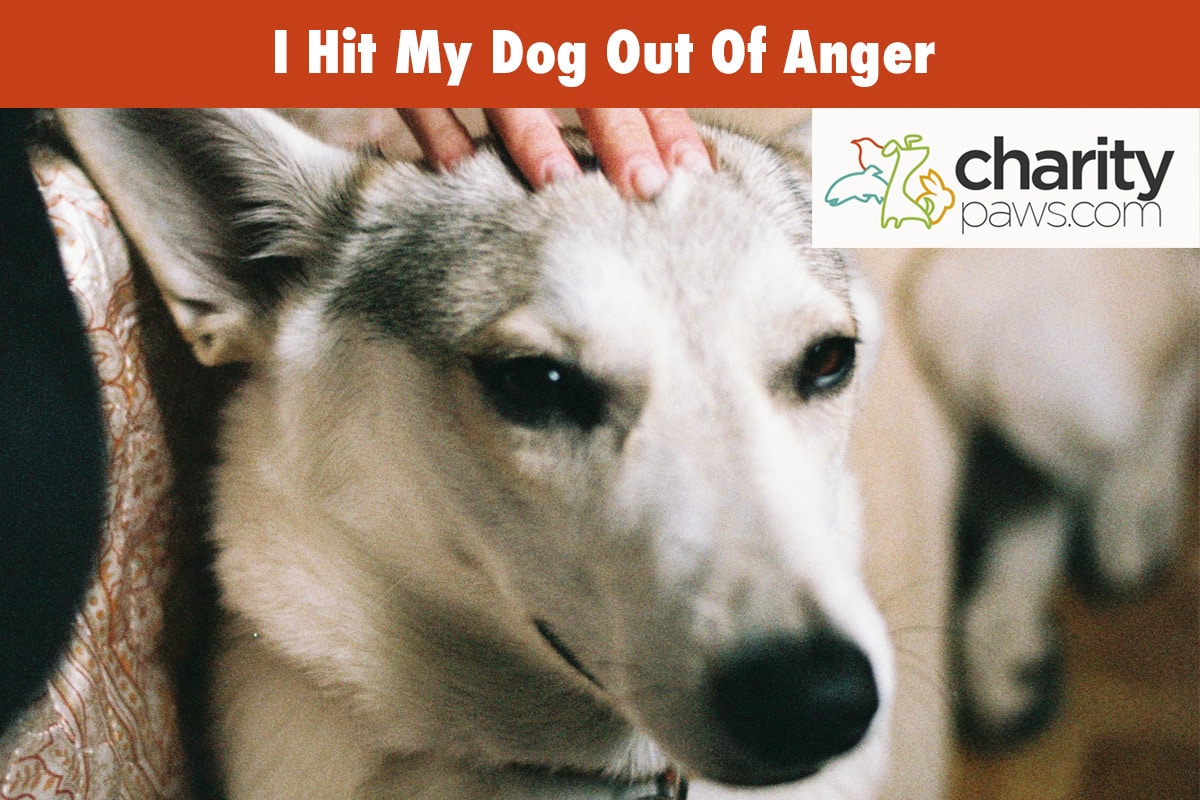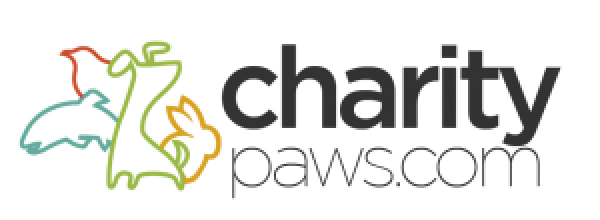We all have bad days. Sometimes things get on top of us, and we lash out. Most of the time this is verbal, with us snapping, shouting, or crying when the frustration gets too much.
But what if this turns physical? If you have hit your dog out of anger you might be feeling upset, confused, and scared about your actions.
In this article, we are going to talk about feelings of anger towards your dog and how you should deal with those in a more appropriate way. We will also discuss alternative, more positive, training methods as well as how to seek help if your dog is proving challenging. You will also know that your dog will forgive you as long as this does not become a habit.

How To Be Calm With My Dog
We all have times when we feel triggered, and sometimes your dog’s behavior is the final straw. Maybe it’s because your patience is used up while rushing around getting kids ready for school and the dog is getting under your feet.
Perhaps he has chewed your brand new pair of shoes, or maybe he just doesn’t seem to get that piece of training that you have practiced over and over and over again. Whatever it is, we must learn to deal with that feeling of anger and calm things down before we react.
Here are our top tips to help you calm down when you feel that emotion rising:
- Stop and remove yourself from the situation if it is safe to do so. Going your separate ways for even just a few seconds can be helpful.
- Take some deep breaths, in through the nose for 5 seconds and out through the mouth for 10 seconds. Imagine blowing away that anger as you breathe out.
- Change things up. For example, if you are in the middle of a frustrating training session with your dog, then stop and have some play to loosen things up again. Or if you come home and find your sofa cushion has been chewed, let your dog outside and remove him from the situation while you gather your thoughts.
- Talk to someone. Venting your frustration to your relatives or friends can get those feelings off your chest. They may also be able to give some outside advice to help you manage things better.
- Spend time bonding with your dog. Grooming, petting, and cuddling your dog will help you to reconnect and help you to remember why you got your pet in the first place.
- Remember that dogs rely on their lead family members to be calm, but assertive. This doesn’t mean shouting and being violent, the latter will make them scared and confused.
Will My Dog Remember That I Hit Him?
Most dogs have a fairly short memory of a one-off event. However, your dog may remember being hit if it happens on repeat occasions. They might form a negative association with the circumstance in which the hit happened.
For example, if they are always hit when they bark because the doorbell rings, they will start to form a negative association with this. This could make them anxious or stressed when visitors come to the door or cause them to shy away from you as they anticipate your actions.
Will My Dog Forgive Me For Hitting Him?
While hitting an animal is never the right thing, most dogs are very forgiving and are good at moving on from a one-off incident. Dogs live in the moment and don’t tend to bear grudges.
However, some factors may influence whether he can carry on as normal after being hit. These include:
- How hard he was hit. A sharp tap on the nose may be forgotten about more easily than a punch.
- Who hit him. A one-off hit from an owner that he is bonded to and who cares for all his needs may be forgiven more easily than someone who he doesn’t trust to begin with.
- How often he is hit. If it really is a one-off then most dogs will be able to move on from this, but if it happens regularly then may start to avoid being around that person.
- The dog’s breed. Some breeds are a bit more robust than others and may be able to brush off a hit.
- The dog’s personality. A nervous, anxious dog may have their confidence severely dented by being hit, whereas a bouncy, happy-go-lucky soul may not take a one-off incident to heart.
You can increase the chances of your dog forgiving you by regaining their trust. Spend time walking and playing with your dog, using plenty of rewards and praise for desirable behaviors. Cuddling your pet and spending extra time in their company will help too.
What To Do If I Can’t Stop Hitting My Dog?
If you are thinking ‘I can’t stop hitting my dog’ then you have made a positive move by searching for advice.
If you have followed our tips to help calm a situation down, but you still can’t stop hitting your dog, then you may need professional help. Unresolved anger management issues, external stresses, or perhaps past trauma, may all be playing their part as to why you can’t control your emotions. Some owners need therapy to explore this further.
There is a clear link between animal abuse and child/spouse abuse, so repeatedly hitting a dog should be taken seriously before things escalate. Even if you can’t imagine hitting a person, there may have once been a day when you never imagined you would hit your dog, but here we are.
Seeking help is better than bottling up emotions or randomly lashing out.
The dog’s welfare is also paramount here. If your dog has specific behavioral issues that are triggering you to hit them, then get help from a dog trainer. Hitting a dog is only likely to make things worse in the longer term, as anxious, scared dogs are more likely to have training problems.
Ultimately, if you are unable to provide a stable home, then it may be best to look at alternative options. It will be better for both of you in the long run to part company. There are many dog rescues who can help you if you need to surrender your dog or give you advise on how to properly do it.
How To Discipline My Dog The Right Way?
Training should revolve around positive reinforcement. Harsh disciplining of a dog rarely works. Instead, you should focus on encouraging behaviors that you would like to see more of.
For example, praising a puppy and giving it a treat when it goes potty outside is likely to mean that the puppy repeats the behavior in the hope of getting another reward. Smacking a puppy that goes potty in the house are likely to cause confusion and make your dog feel anxious about where it should go, resulting in more accidents.
Here are some other tips to follow when training your dog, which all revolve around positive reinforcement:
Stay calm and assertive
When training a dog you should be assertive, but calm. A firm ‘no’ for incorrect behavior is appropriate but follow this by encouraging the actions that you want with praise and treats. Shouting at your dog is not helpful.
Redirect unwanted behavior
Try and stop your dog from doing unwanted behavior by redirecting his attention to something more appropriate. For example, if your dog gets carried away and starts mouthing at hands or clothes, distract him with a chew toy, praising him and giving lots of fuss for playing with it.
Ignoring unwanted behavior
If the incorrect behavior continues, ignoring your dog is another approach (if it is safe to do so). Sometimes making a big deal out of a situation can make things worse. A dog that is barking and overexcited will continue to become wound up if you start shouting at him. Instead, turn your back on him or calmly leave the room until he is calm again, then praise him.
Consistency
Set the rules early on, and make sure everyone in the household follows them. For example, if the dog is not allowed on the sofa, make sure this is the case all of the time and that your other family members are not sneaking them up occasionally.
Training Classes
If you are still unsure how to approach training your dog then speak to your vet. They might be able to recommend some good training classes or dog trainers in your local area, to help show you the right techniques.
How To Deal With Dogs Who Have Severe Behavior Issues
Dogs that have serious behavioral issues need professional help. Hitting these dogs because of their problems is likely to make things worse. Many dogs with behavioral issues have underlying anxiety, so hitting or shouting at them is only going to make this worse.
You may get the result you want in the moment or feel better for letting off a bit of steam, but it really won’t help.
You must seek professional advice from a vet and a qualified behaviorist. They will check the dog for underlying medical issues that could be contributing and help form a plan of action. Providing these dogs with plenty of exercise, mental stimulation, and positive reinforcement training will also help.
My Rescue Dog Was Hit By A Previous Owner, What Can I Do?
Rescue dogs may have suffered abuse at the hands of previous owners, leaving them anxious and confused. New owners must work on building the dog’s trust and not expect too much too soon.
Speaking in soft low tones and allowing the dog to come to you can be helpful initially. You should also establish a regular routine so that the rescue dog knows what to expect from each day.
This will help create a feeling of security. Remember to stick to positive reinforcement training, praising, and rewarding any correct behavior. Plenty of play, grooming, and petting will also help to establish that bond.
Working with a qualified behaviorist or seeking help can be helpful if your dog is very anxious.
What Are Animal Cruelty Laws
We all know that hitting a dog is not a good thing to do, but did you know there are rules in place to protect dogs from cruelty? While a one-off hit is unlikely to be viewed as cruelty, repeat events or harshly beating your dog is and you could be prosecuted.
Laws exist in every state to protect animals, with neglect or abuse taken very seriously. Harsher penalties exist for repeat offenders or for owners that cause serious injury.
Cases of suspected animal cruelty can be reported by calling 911 or The Humane Society.

You Hit Your Dog Out Of Anger – Moving Forward
Hitting your dog might make you feel better in the moment but could cause damage to your pet’s training long term. While a one-off hit might be forgiven, dogs will find it hard to move on from repeated harsh discipline and it could negatively affect your bond.
You should work on positive training techniques and seek the help of a dog behaviorist if you are struggling.
Consider also getting help for yourself if you believe you have underlying anger management issues. You and your dog will be far happier in the long run if you can communicate with each other without the need for violence.
FAQs
Is It Bad To Hit My Dog?
Hitting any living creature is never a good thing. While it may make you feel better to blow off steam in the moment it could make your dog feel anxious. This will affect the bond your pet has with you. Positive training methods, with praise and reward for desired behavior, is far more likely to yield better results.
I Hit My Dog And Feel Bad, What Should I Do?
If you feel bad for hitting your dog, this is a good thing. It shows that you know right from wrong and hopefully want to act differently next time. Try working on some calming techniques, give your dog some extra cuddles, and seek help with their training if you need it.
I Hurt My Dog Out Of Anger, Do I Need Help?
Everyone feels angry from time to time, but if you feel out of control frequently, then you could need professional help. Speak to your doctor about therapy or anger management courses to help you react differently in the future. If things are allowed to escalate, then your bond with your dog could suffer.

